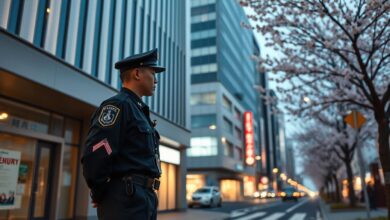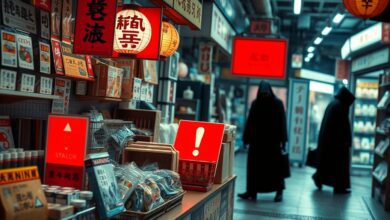Is Prostitution Legal in Japan? Find Out Now
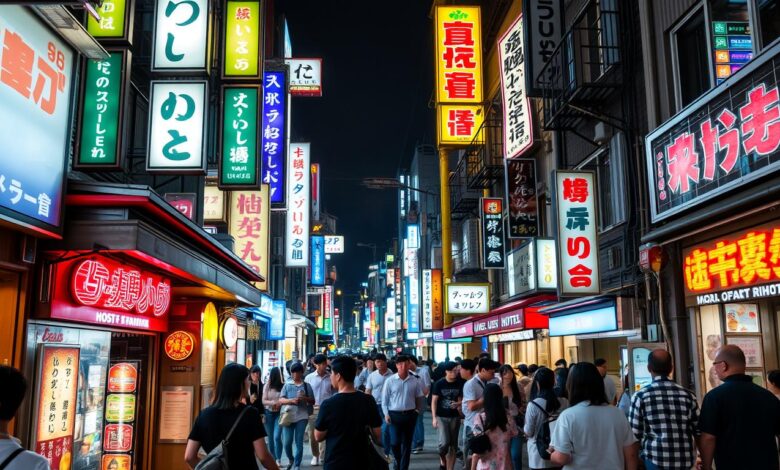
Is prostitution legal in Japan? The answer to this question is not straightforward because Japan’s Prostitution laws are very complicated. The Prostitution Prevention Law of 1956 makes buying or selling sex illegal. Yet, loopholes and interpretations have allowed the sex industry to thrive. With 42 million people involved globally, knowing the laws is key.
In Japan, the law’s definition of prostitution is narrow. This makes enforcing it hard. Many wonder what the laws mean. To grasp prostitution in Japan, we must look at its history and laws.
The Japanese sex industry is worth about $24 billion annually. It’s a big part of Japan’s economy. Despite its size, prostitution laws are unclear. We’ll investigate the industry’s history, laws, and societal impact.
The Current Legal Status of Prostitution in Japan
Japan’s sex industry is complex and varied. It includes many services and businesses. The Anti-Prostitution Law of 1956 is a key law here. It says prostitution is “intercourse with an unspecified person in exchange for payment.”
To stay legal, most services offer non-coital options. This way, they avoid breaking the law.
The adult entertainment industry in Japan works around the law. It offers a variety of services to meet different tastes. Fashion health and delivery health are examples of these services. They provide non-coital options to clients.
Even though the anti-prostitution law aims to stop commercial sex, it has led to more erotic services. This has made the market more diverse.
Overview of the Anti-Prostitution Law of 1956
The Anti-Prostitution Law of 1956 is a key law for Japan’s sex industry. It only bans penile-vaginal intercourse. This allows other services to operate legally.
This has led to businesses that offer sexual services. These services are for cisgender women and men and transgender women, too.
Definition of Prostitution Under Japanese Law
In Japan, prostitution is “intercourse with an unspecified person in exchange for payment.” This definition is narrow. It lets the adult entertainment industry operate legally.
Many businesses in this industry offer non-coital services. These services are not seen as prostitution under the law.
Legal Penalties and Enforcement
Breaking the prostitution laws in Japan can lead to fines and jail time. But, the law is not always enforced. Many businesses in the industry operate freely.
The government is trying to stop human trafficking and forced labor. But more needs to be done. This is to protect sex workers and prevent exploitation.
| Year | Investigations | Prosecutions | Convictions |
|---|---|---|---|
| 2020 | 32 | 507 | 17 |
Historical Evolution of Japanese Sex Work Laws
Japan’s laws on sex work have changed a lot over time. In the early 1640s, Yoshiwara in Edo had almost 1,000 prostitutes. By the mid-1840s, this number grew to 7,000. By the end of the 17th century, Japan had thirty-five licensed quarters (yūkaku) across the country, with Yoshiwara being the most famous.
The licensed quarters were walled and had single gates. Some even had moats to keep them separate from the city. These quarters had a class system, with the tayū at the top by the 18th century. They also had places like ageya, teahouses, brothels, and stores.
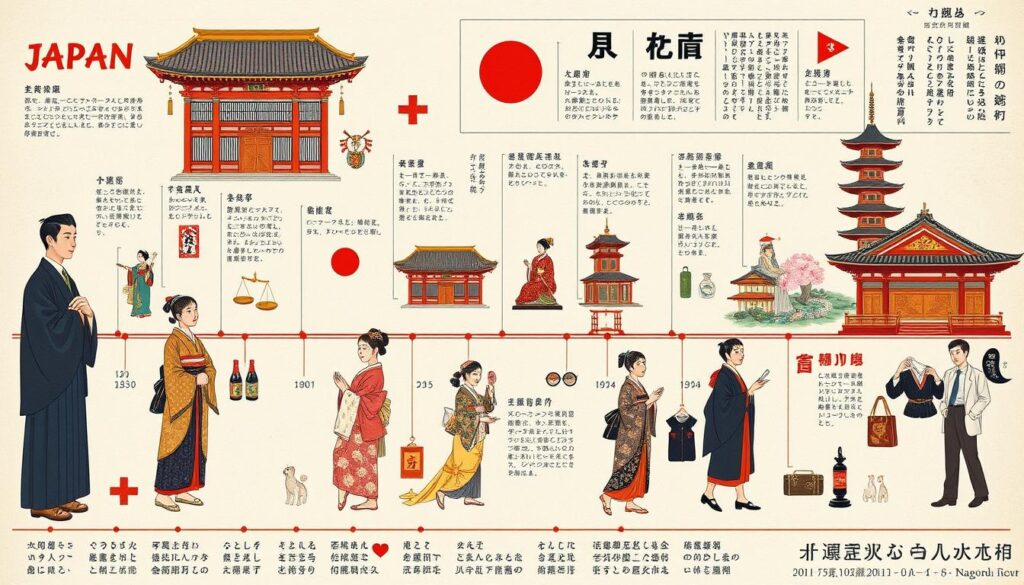
In the 1950s, about half a million women in Japan worked in sex work. They made around 30,000 yen a month. The Prostitution Prevention Act of 1956 tried to control the industry. However, organized crime soon took over the illegal sex trade in Japan.
| Year | Number of Prostitutes | Typical Earnings |
|---|---|---|
| 1640s | 1,000 | N/A |
| 1840s | 7,000 | N/A |
| 1950s | 500,000 | 30,000 yen/month |
Understanding Japan’s Adult Entertainment Laws
Japan’s adult entertainment laws are quite complex. The industry is huge, with an annual revenue of 2.3 trillion yen. Knowing legal adult entertainment services like fashion and delivery health is key.
The prostitution laws in Japan have changed a lot. The Anti-Prostitution Law of 1956 was a big change. It made paying for sex illegal, ending old systems like “red line” and “blue line” districts.
Types of Legal Adult Entertainment
Legal adult entertainment in Japan includes:
- Fashion health clubs which offer services that don’t include sexual intercourse
- Delivery health services, where sex workers go to customers’ homes or hotels
- Image clubs, themed brothels that play out common fantasies
Licensing Requirements and Regulations
The rules for adult entertainment in Japan are strict. Businesses need licenses and must follow certain rules. The Businesses Affecting Public Morals Regulation Law covers acts by sex workers for pay.
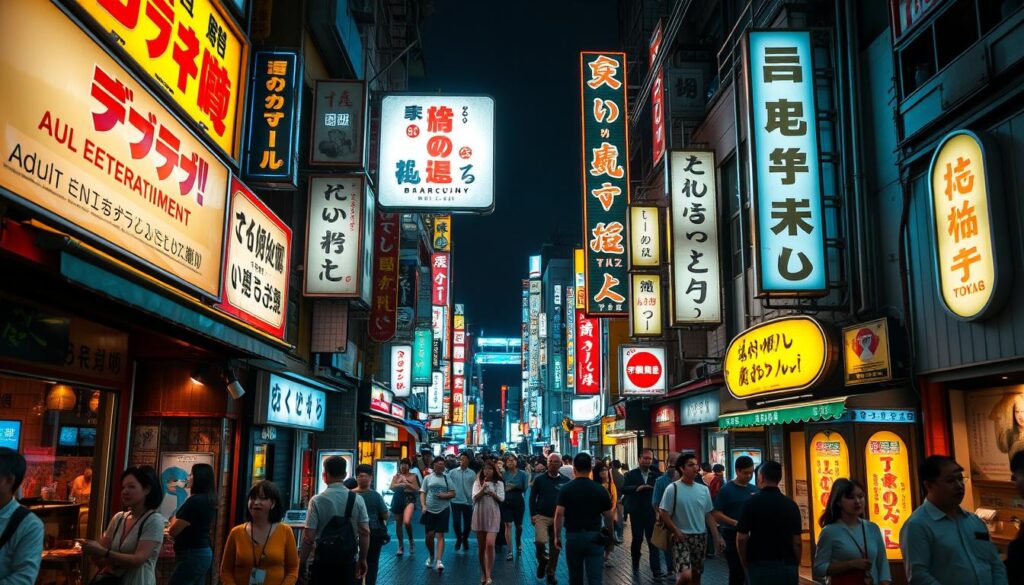
Grey Areas in Legislation
Even with strict rules, there are loopholes. The “specified persons” rule helps the sex industry keep going. Services like Sumata and Soaplands use these loopholes.
| Type of Service | Description |
|---|---|
| Fashion Health | Offers a range of services that fall short of sexual intercourse |
| Delivery Health | Dispatches sex workers to customers’ homes or hotels |
| Image Clubs | Themed brothels simulating common sexual fantasies |
Famous Red-Light Districts in Modern Japan
Japan has a long history of red-light districts, with some still famous today. Yoshiwara in Tokyo’s Taitō-ku Senzoku 4 Chōme is one example. It was established in 1617 and was once home to over 1,750 women. It was known for its luxurious establishments catering to the elite.
Other notable districts include Shinmachi in Osaka. These districts have changed over time. Some still have commercial establishments involved in the sex trade. However, the Japanese government has laws to control the industry, like the Anti-Prostitution Law of 1958.
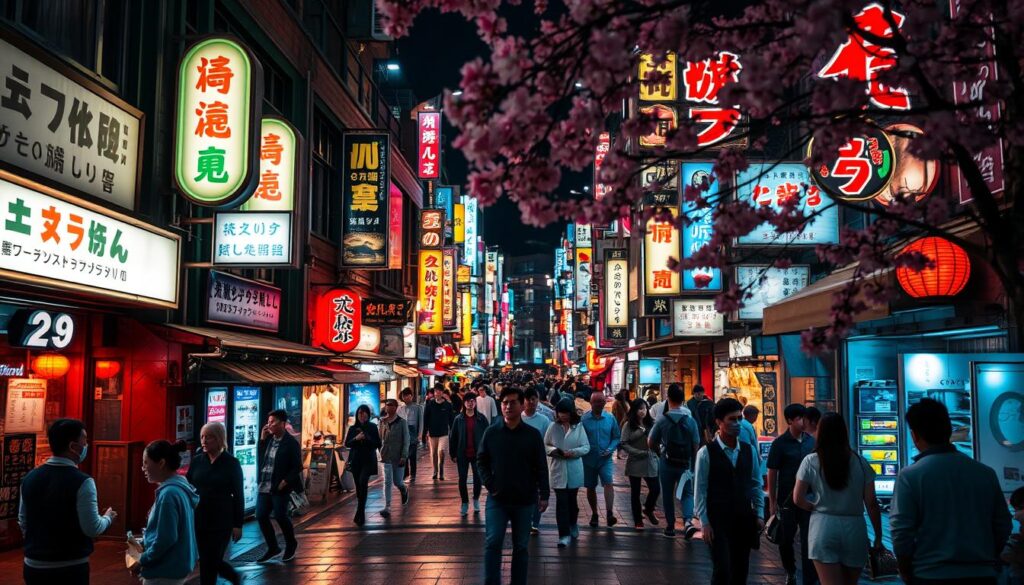
- Entertainment services
- Massage services
- Other forms of adult entertainment
These services are provided discreetly and respectfully. They meet client needs while following the laws.
Despite challenges, these districts remain a big part of Japan’s history and culture. Famous ukiyo-e prints by artists like Kitagawa Utamaro and Suzuki Harunobu show their beauty. They highlight their importance in Japanese society.
The Reality of Japan’s Sex Industry Today
The Japanese sex industry is complex and has a big impact on the economy. It has a long history and continues to grow despite strict laws. Many different types of businesses operate across the country.
Business models like fashion health and delivery health are common. They often work in a legal grey area, offering services that might be seen as prostitution. Sex workers in these places face risks like STDs and violence.
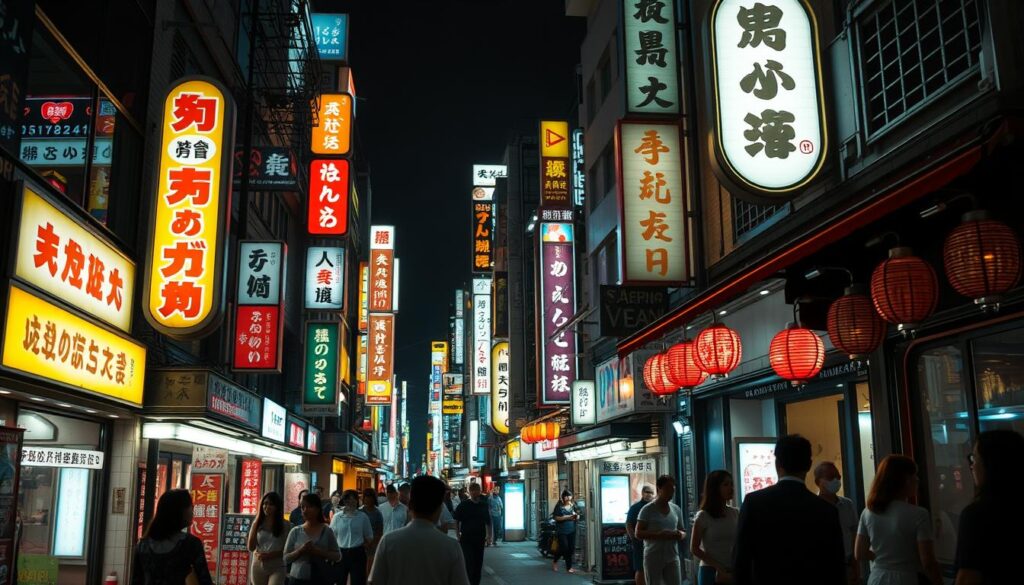
The industry is huge, making about $40 billion a year. It has also shaped Japanese society, but some say it hurts women’s job chances.
| Year | Number of Prostitutes | Revenue |
|---|---|---|
| 1956 | 120,000 | $10 billion |
| 2020 | 100,000 | $40 billion |
Japan’s laws have shaped the industry, with many places operating on the edge of legality. But, these laws have also pushed more women into the adult industry. Some keep their jobs secret from their families.
Law Enforcement and Prostitution in Japan
Prostitution laws in Japan are complex. Law enforcement plays a big role in controlling the sex industry. The government has worked hard to fight human trafficking, increasing convictions for sex trafficking.
In 2022, there were 22 suspected traffickers in 60 cases. Authorities started prosecutions against 32 alleged traffickers for sex trafficking.
Law enforcement faces big challenges in regulating the sex industry. These include:
- Identifying and prosecuting traffickers, with most convicted traffickers receiving fully suspended sentences
- Protecting victims of sex trafficking, mainly children, who are often exploited in the commercial sex industry
- Regulating the activities of street girls, who face risks such as contracting sexually transmitted diseases and violence
Despite these challenges, law enforcement in Japan has made progress. The government has passed anti-organized crime ordinances. These have reduced organized crime groups’ influence. The Prostitution Prevention Law has also been enforced to target organized prostitution and human trafficking.
Yet, Japan’s sex industry practices are still unclear. This makes it hard for the country to be seen as credible internationally. Japan has a long history of licensed prostitution, dating back to the 1600s. It’s important to keep enforcing prostitution laws and protect victims of sex trafficking.
| Year | Number of Convicted Sex Traffickers | Number of Prosecutions Initiated |
|---|---|---|
| 2022 | 33 | 32 |
Legal Adult Entertainment vs Illegal Services
Knowing the difference between legal and illegal adult services is key in Japan. The country’s laws on prostitution are complex, with many loopholes. It’s important to look at the different services and the laws that cover them.
Legal adult entertainment in Japan includes fashion health and delivery health. These services offer erotic massage and unique techniques. But, exchanging money for sexual services is strictly forbidden under Japan’s laws.
- Fashion health: a type of adult entertainment that involves erotic massage and other services
- Delivery health: a service where erotic massage is provided in the comfort of the client’s home or hotel
- Soaplands: establishments that offer massage and other services, often with a focus on relaxation and pampering
Even though these services are legal, there are still risks. It’s vital to prioritize safety and respect for everyone involved. Knowing the difference between legal and illegal services helps people make better choices and avoid breaking the law.
Impact of Anti-Prostitution Laws on Society
The laws against prostitution in Japan have big social effects. They try to stop prostitution, punish those who help it, and help women in it. However, many women in the Japanese sex industry still face exploitation.
One big issue is the rise of freelance work. Women or schoolgirls look for partners on their own. This makes it hard for police to control the industry.
In Japan, the main goal of laws is to stop prostitution. They mainly blame and punish the women. Critics say this doesn’t solve the problem and puts sex workers in danger.
Looking at the impact of these laws is important. We need to think about a few things:
- Social perspectives: The laws affect how society views sex workers, leading to stigma and discrimination.
- Economic effects: The laws hurt the income of sex workers and the whole Japanese sex industry.
- Public health considerations: The laws can lead to health risks, like STIs, and make it hard for sex workers to get healthcare.
International Comparison of Prostitution Laws
Japan’s prostitution laws are unique. The Japanese sex industry is a big part of the country’s economy. In Africa, most countries make prostitution illegal, leading to high HIV/AIDS rates among sex workers.
In Asia, Thailand technically bans prostitution but often turns a blind eye. Japan allows most types of prostitution, making a lot of money from it. Countries like China and India have strict laws, but prostitution still happens.
Different regions have different views on prostitution laws:
- In North America, laws about prostitution vary by country. Most have some form of legalization.
- In Europe, some places like Belgium don’t criminalize sex work. Others, like Sweden, make it illegal to pay for sex but not to sell it.
- In Eastern Europe, most countries made prostitution illegal during communism. They still have these laws today.
Looking at how other countries handle prostitution can help us understand Japan’s laws better. It shows we need careful and thoughtful ways to regulate and enforce these laws.
| Country | Prostitution Laws | Sex Industry Revenue |
|---|---|---|
| Japan | Allowed except for heterosexual, vaginal intercourse | $24 billion |
| China | Illegal but widespread | N/A |
| India | Illegal | N/A |
Conclusion: Understanding Japan’s Complex Relationship with Sex Work
Japan’s view on sex work is complex, with a history that shows how society has changed. Even though prostitution is illegal, the sex industry is huge, making billions each year. It also employs hundreds of thousands of people.
The industry’s legal gray area puts sex workers at risk of being exploited and abused. They need more protection and support.
The Japanese sex trade has changed over time, with different types of adult entertainment. But, the government hasn’t done enough to stop problems like underage involvement and violence against women. It’s important to understand the issues and fight for the rights of those in the industry.
FAQ
Is prostitution legal in Japan?
What is the definition of prostitution under Japanese law?
What are the legal penalties for engaging in prostitution in Japan?
What is the history of sex work laws in Japan?
What types of legal adult entertainment services are available in Japan?
How large is Japan’s sex industry, and what is its economic impact?
How do law enforcement agencies approach prostitution in Japan?
What is the difference between legal adult entertainment services and illegal prostitution in Japan?
What are the social and economic impacts of anti-prostitution laws in Japan?
How does Japan’s approach to prostitution compare to other countries?
Source Links
- Countries Where Prostitution Is Legal 2024 – https://worldpopulationreview.com/country-rankings/countries-where-prostitution-is-legal
- The price tags and perils of being a prostitute in Shinjuku – https://japantoday.com/category/features/kuchikomi/The-price-tags-and-perils-of-being-a-prostitute-in-Shinjuku
- PDF – https://www.berghahnjournals.com/downloadpdf/journals/jla/5/2/jla050202.pdf
- Japan – https://2009-2017.state.gov/j/tip/rls/tiprpt/countries/2015/243463.htm
- No title found – https://oxfordre.com/asianhistory/display/10.1093/acrefore/9780190277727.001.0001/acrefore-9780190277727-e-71?d=/10.1093/acrefore/9780190277727.001.0001/acrefore-9780190277727-e-71&p=emailAmuMHoDLqQiAY
- The Battle to Keep Prostitution Legal in 1950s Japan – JSTOR Daily – https://daily.jstor.org/battle-to-legalize-prostitution-in-1950s-japan/
- Prostitution in Japan – https://en.wikipedia.org/wiki/Prostitution_in_Japan
- Types of prostitution in modern Japan – https://en.wikipedia.org/wiki/Types_of_prostitution_in_modern_Japan
- Yoshiwara – https://en.wikipedia.org/wiki/Yoshiwara
- The Evolution of Japan’s Red-Light Districts – Welcome – https://sengokuchronicles.com/the-evolution-of-japans-red-light-districts/
- Japan’s Sex Industry – https://donnykimball.com/dark-side-of-the-sun-2836a8652bc8?srsltid=AfmBOoonWUN1VhpmtGMJXHRHkpq164NYchqpfnB0z27sRwhgaf9b-B0c
- The Rising Tide of Foreign Prostitution Tours and the Reality of Street Girls in Tokyo – https://www.japanpi.com/blog/editorial/prostitution-tour-in-tokyo/
- The $40 Billion Shadow: Inside Japan’s Enigmatic Sex Industry – https://medium.com/@ashe.vader/the-40-billion-shadow-inside-japans-enigmatic-sex-industry-94b688b58059
- Japan – United States Department of State – https://www.state.gov/reports/2023-trafficking-in-persons-report/japan
- Japan’s Prostitution Prevention Law: The Case of the Missing Geisha – https://scholarship.shu.edu/cgi/viewcontent.cgi?article=1072&context=student_scholarship
- Deciphering the Legality of Prostitution in Japan – Pleasure in Japan – https://www.pleasureinjapan.com/blog/legality-of-prostitution-in-japan
- Sexnomics: Japan’s 100 Billion Dollar Sex Industry And The Pink Zone – https://www.japansubculture.com/sexnomics-japans-billion-dollar-sex-industry-and-the-pink-zone/
- Bread & Roses: Do Sex Workers Really Have a Choice? – SNA Japan – https://shingetsunewsagency.com/2022/04/04/bread-roses-do-sex-workers-really-have-a-choice/
- Prostitution Prevention Law – https://en.wikipedia.org/wiki/Prostitution_Prevention_Law
- East Asian Youth Cultures Spring 2015: Sex Work in Japan: Precarity, Risk, Empowerment? – https://scalar.usc.edu/works/breakdancers-vocaloids-and-gamers-east-asian-youth-cultures-spring-2015/sex-work-in-japan-precarity-risk-empowerment
- Prostitution by region – https://en.wikipedia.org/wiki/Prostitution_by_region
- Prostitution in Asia – https://en.wikipedia.org/wiki/Prostitution_in_Asia
- The Commodification of Sex in Modern Japan: Outdated Attitudes and Overdue Reforms – https://www.emerald.com/insight/content/doi/10.1108/978-1-80117-127-420221004/full/html
- Barely Legal. The Japanese Sex Industry – http://staging7.hc.ulyssis.be/the_magazine/sex_industry/



